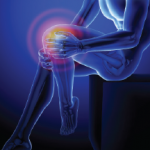When it comes to systemic lupus erythematosus (SLE) and cardiovascular events (CVEs), the rheumatology community is woefully lacking in information, say researchers from the University of California, Los Angeles (UCLA) David Geffen School of Medicine and Cedars-Sinai Medical Center. Their recent work on biomarkers associated with an increased risk for cardiovascular events in women with…








